Neurofeedback & Chemo Brain Studies
1.The Effect of EEG Biofeedback on Reducing Postcancer Cognitive Impairment
Jean Alvarez, EdD1
Fremonta L. Meyer, MD2
David L. Granoff, PsyD3
Allan Lundy, PhD4
1Applied Brain Research Foundation of Ohio, Cleveland OH, USA
2Dana Farber Cancer Institute, Boston, Ma, USA and Brigham and Women’s Hospital, Boston, MA USA
3Lake Erie Brain Performance Institute, Beachwood, OH, USA
4Independent Research Consultant, New Market, VA, USA
Jean Alvarez, Applied Brain Research Foundation of Ohio, River’s Edge, 3430 Rocky River Dr, Cleveland, OH 44111, USA. Email: jalvarez@ohiobrainresearch.org
Abstract
Background and hypotheses. Postcancer cognitive impairment (PCCI) is observed in a substantial number of breast cancer survivors, persisting for as long as 20 years in some subgroups. Although compensatory strategies are frequently suggested, no restorative interventions have yet been identified. This study examined the feasibility of EEG biofeedback (“neurofeedback”) and its potential effectiveness in reducing PCCI as well as the fatigue, sleep disturbance, and psychological symptoms that frequently accompany PCCI. Study design. This was a 6-month prospective study with a waitlist control period followed by an active intervention. Participants were female breast cancer survivors (n = 23), 6 to 60 months postchemotherapy, with self-reported cognitive impairment. Methods. Four self-report outcome measures (Functional Assessment of Cancer Therapy–Cognitive Function [FACT-Cog], Functional Assessment of Chronic Illness Therapy–Fatigue [FACIT-Fatigue], Pittsburgh Sleep Quality Index [PSQI], and Brief Symptom Inventory [BSI]-18) were administered 3 times during a 10-week waitlist control period, 3 times during a 10-week (20-session) neurofeedback training regimen, and once at 4 weeks post neurofeedback. Results. All 23 participants completed the study, demonstrating the feasibility of EEG biofeedback in this population. Initially, the sample demonstrated significant dysfunction on all measures compared with general population norms. Repeated-measures ANOVAs revealed strongly significant improvements (P < .001) on all 4 cognitive measures (perceived cognitive impairment, comments from others, perceived cognitive abilities, and impact on quality of life [QOL]), the fatigue scale, and the 4 psychological scales (somatization, depression, anxiety and global severity index) as well as on 3 of 8 sleep scales (quality, daytime dysfunction, and global). Two of the other sleep scales (latency and disturbance) were significant at P < .01, and 1 (use of medication) at P < .05; 2 were not significant. Improvements were generally linear across the course of training, and were maintained at the follow-up testing. At the follow-up testing, the sample no longer differed significantly from normative populations on 3 of the 4 FACT-Cog measures (impairment, impact on QOL, and comments), FACIT-Fatigue, PSQI sleep quality and habitual efficiency, or any of the BSI-18 measures of psychological disturbance. Conclusions. Data from this limited study suggest that EEG biofeedback has potential for reducing the negative cognitive and emotional sequelae of cancer treatment as well as improving fatigue and sleep patterns.
2 Chemo brain’: Researchers identify physiological evidence of chemotherapy-induced changes in the brain
Date:
November 27, 2012
Source:
Radiological Society of North America
Summary:
Chemotherapy can induce changes in the brain that may affect concentration and memory, according to a new study. Using positron emission tomography combined with computed tomography, researchers were able to detect physiological evidence of chemo brain, a common side effect in patients undergoing chemotherapy for cancer treatment.
“The chemo brain phenomenon is described as ‘mental fog’ and ‘loss of coping skills’ by patients who receive chemotherapy,” said Rachel A. Lagos, D.O., diagnostic radiology resident at the West Virginia University School of Medicine and West Virginia University Hospitals in Morgantown, W.V. “Because this is such a common patient complaint, healthcare providers have generically referred to its occurrence as ‘chemo brain’ for more than two decades.”
While the complaint may be common, the cause of chemo brain phenomenon has been difficult to pinpoint. Some prior studies using magnetic resonance imaging (MRI) have found small changes in brain volume after chemotherapy, but no definitive link has been found.
Instead of studying chemotherapy’s effect on the brain’s appearance, Dr. Lagos and colleagues set out to identify its effect on brain function. By using PET/CT, they were able to assess changes to the brain’s metabolism after chemotherapy.
“When we looked at the results, we were surprised at how obvious the changes were,” Dr. Lagos said. “Chemo brain phenomenon is more than a feeling. It is not depression. It is a change in brain function observable on PET/CT brain imaging.”
For the study, Dr. Lagos and colleagues analyzed PET/CT brain imaging results from 128 patients who had undergone chemotherapy for breast cancer. They used special software to help discern differences in brain metabolism before and after chemotherapy. Results were correlated with patient history, neurologic examinations and chemotherapy regimens.
PET/CT results demonstrated statistically significant decreases in regional brain metabolism that were closely associated with symptoms of chemo brain phenomenon.
“The study shows that there are specific areas of the brain that use less energy following chemotherapy,” Dr. Lagos said. “These brain areas are the ones known to be responsible for planning and prioritizing.”
Dr. Lagos believes that PET/CT could be used to help facilitate clinical diagnosis and allow for earlier intervention.
Research has already shown that patients with chemo brain can benefit from the assistance of nutritionists, exercise therapists, massage therapists and counselors. In one study, cancer patients receiving chemotherapy complained of losing their ability to prepare family meals.
“When the researchers provided these patients with written and planned menus for each meal, the women were able to buy the groceries, prepare the meals and enjoy them with their families,” Dr. Lagos said.
Dr. Lagos and her fellow researchers hope that future studies will lead the way to better treatment for patients experiencing this often debilitating condition.
“The next step is to establish a prospective study that begins assessing new patients at the time of cancer diagnosis,” she said. “The prospective study has the potential to establish an understanding of the change in brain neurotransmitters during chemotherapy, which may lead to improved treatment or prevention.”
Coauthors are Jame Abraham, M.D., Gary Marano, M.D., Marc Haut, Ph.D., and Sara Kurian, M.S.
3. Brain Training May Help Clear Cognitive Fog Caused by Chemotherapy by Susan Young Rojhan
The mental fuzziness induced by cancer treatment could be eased by cognitive exercises performed online, say researchers.Cancer survivors sometimes suffer from a condition known as “chemo fog”—a cognitive impairment caused by repeated chemotherapy. A study hints at a controversial idea: that brain-training software might help lift this cognitive cloud.
Various studies have concluded that cognitive training can improve brain function in both healthy people and those with medical conditions, but the broader applicability of these results remains controversial in the field.
In a study published in the journal Clinical Breast Cancer, investigators report that those who used a brain-training program for 12 weeks were more cognitively flexible, more verbally fluent, and faster-thinking than survivors who did not train. Patients treated with chemotherapy show changes in brain structure and function in line with diffuse brain injury, and they often report long-term cognitive effects, says Shelli Kesler, a Stanford University clinical neuropsychologist who led the research. The new study “suggests that cognitive training could be one possible avenue for helping to improve cognitive function in breast cancer survivors treated with chemotherapy,” she says
[schedule_now widget=”overlay”]









